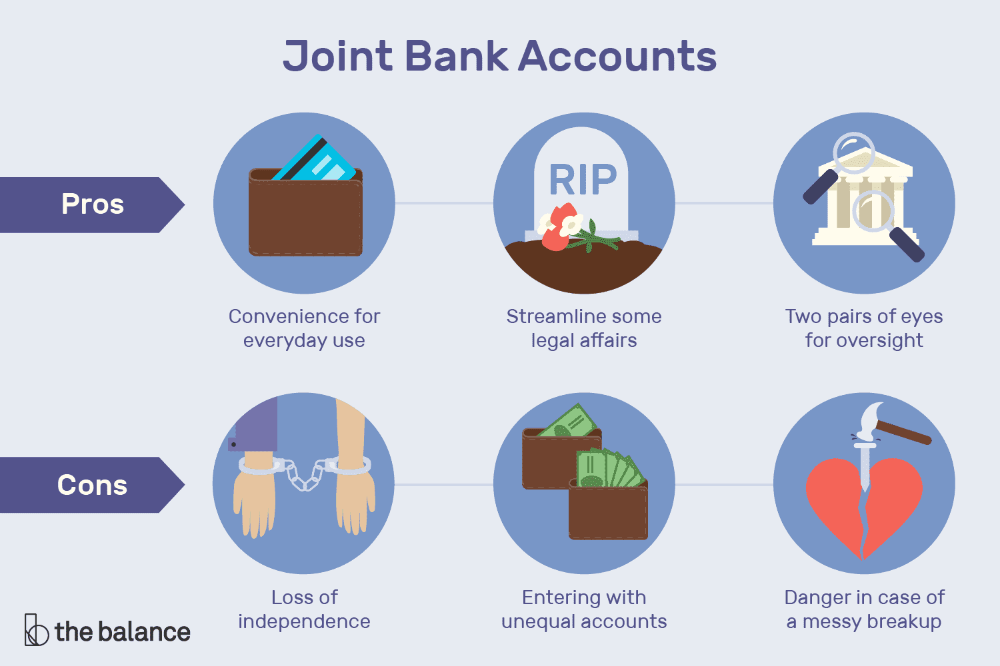As our parents age, managing their finances can become a daunting task. One option that often comes to mind is opening a joint bank account with an elderly parent. However, this decision is not as straightforward as it may seem, and it’s crucial to weigh the pros and cons carefully before taking any action.
The Allure of Convenience
The primary appeal of a joint bank account with an elderly parent lies in its convenience. With shared access, you can easily monitor transactions, track account balances, and manage your parent’s financial needs with greater ease. This level of transparency can also help detect potential fraud or unusual activity, providing an added layer of protection for your loved one’s assets.
Moreover, a joint account grants you immediate access to the funds upon your parent’s passing, bypassing the often-lengthy probate process. This can be invaluable in handling final expenses, such as funeral costs or outstanding bills, without unnecessary delays.
The Risks and Drawbacks
While the convenience of a joint bank account is undeniable, it also carries significant risks and potential drawbacks that must be carefully considered.
-
Financial Vulnerability: If you find yourself in financial difficulties, such as bankruptcy or legal disputes, creditors may attempt to seize the funds in the joint account to settle your debts. This could jeopardize your parent’s financial security and potentially deplete their hard-earned savings.
-
Eligibility Implications: Having a joint bank account with an elderly parent could impact their eligibility for certain government benefits, such as Medicaid, which provides financial assistance for long-term care. The funds in the joint account may be considered a transferable asset, potentially disqualifying your parent from receiving these crucial benefits.
-
Tax Complications: A joint bank account can introduce tax complexities. If the account earns interest, both you and your parent must report and pay taxes on the earned interest, regardless of who contributed the funds.
-
Sibling Conflicts: In families with multiple children, a joint bank account can be a source of contention and disputes. Siblings may perceive the arrangement as favoritism or suspect misuse of the funds, leading to strained relationships and potential legal battles.
Exploring Safer Alternatives
Given the potential risks associated with joint bank accounts, it’s essential to explore safer alternatives that can achieve similar goals while minimizing potential conflicts and safeguarding your parent’s financial well-being.
-
Power of Attorney: Establishing a power of attorney arrangement allows you to legally manage your parent’s financial affairs on their behalf without the need for a joint account. This option provides you with the necessary access while maintaining clear boundaries and accountability.
-
Signature Authority: Many banks offer the option of granting signature authority on your parent’s account, enabling you to make transactions and pay bills without becoming a joint account holder.
-
Payable on Death (POD) Provision: By adding a POD provision to their bank accounts, your parent can designate beneficiaries to receive the account funds directly upon their passing, bypassing probate without the need for a joint account.
-
Direct Deposit: Consider opening a separate checking account solely for managing your parent’s finances. Your parent’s trust or savings account can automatically deposit funds into this account, allowing you to handle expenses without commingling assets.
Seek Professional Guidance
Every family’s financial situation is unique, and the decision to open a joint bank account with an elderly parent should not be taken lightly. It’s highly recommended to seek guidance from professionals, such as certified financial advisors or elder law attorneys, who can provide personalized advice tailored to your specific circumstances.
These experts can help you navigate the complexities of managing your parent’s finances, explore alternative solutions, and ensure that your actions align with their best interests while minimizing potential risks and conflicts.
The Bottom Line
While the convenience of a joint bank account with an elderly parent is undeniable, it’s essential to carefully weigh the risks and potential drawbacks against the benefits. If you have siblings, the potential for disputes and conflicts increases significantly, making alternative arrangements more advisable.
By exploring safer options, such as power of attorney, signature authority, or direct deposit arrangements, you can achieve the desired level of financial oversight and support for your parent while minimizing the risks to their assets and eligibility for crucial benefits.
Ultimately, the decision should be guided by your family’s unique circumstances, open communication with all parties involved, and the guidance of trusted professionals. By approaching this decision with care and consideration, you can ensure that your elderly parent’s financial well-being is protected while maintaining harmonious family relationships.
Should You Have a Joint Bank Account with your Parent
FAQ
Should I add myself to my elderly parents bank account?
Should my name be on my elderly parents bank account?
How can I protect my elderly parents assets?

